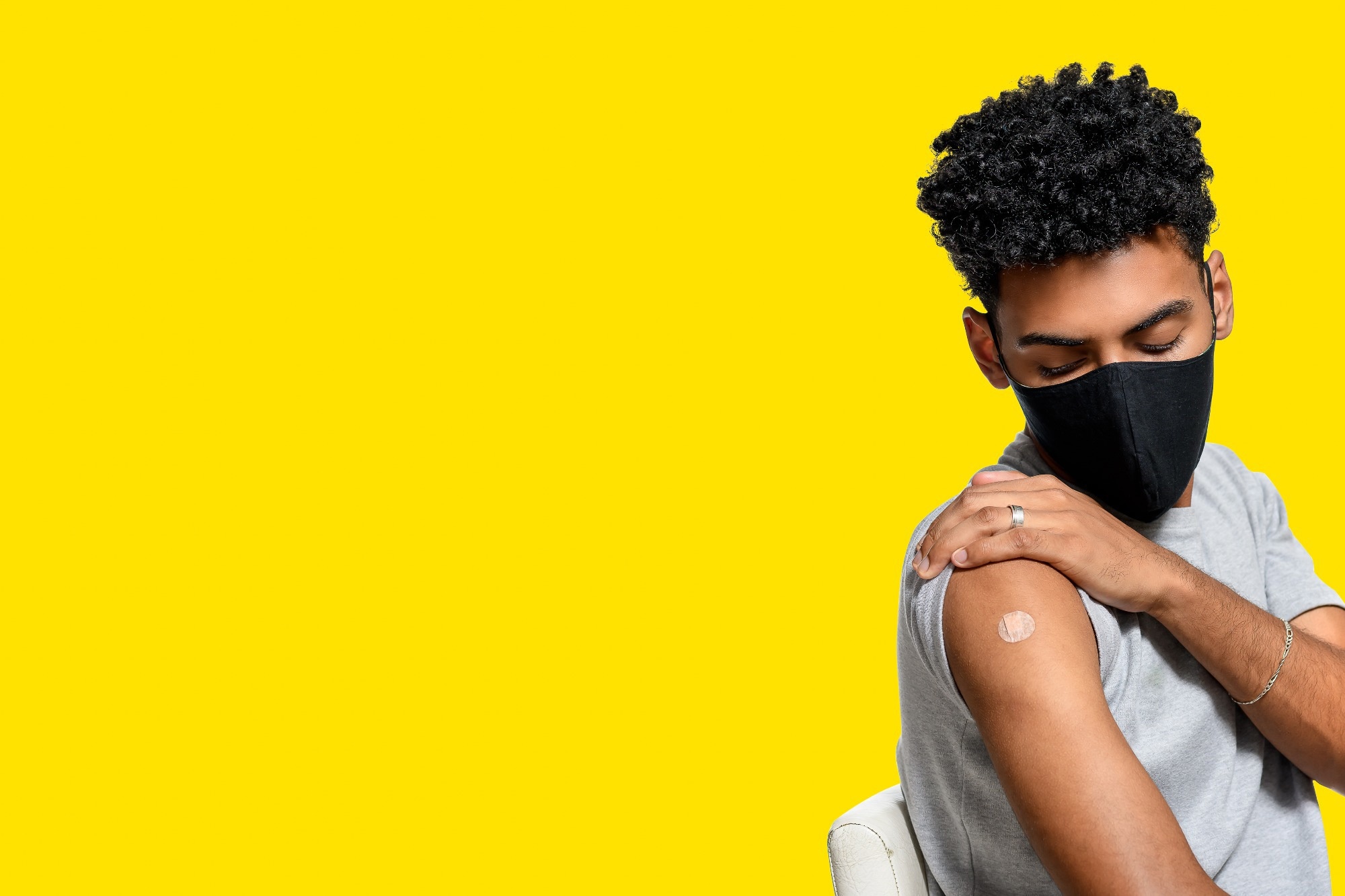For adolescent individuals, data on mRNA-1273 and BNT162b2 VE estimates against severe acute respiratory syndrome coronavirus 2 (SARS-CoV-2) infection outcomes over the long term are limited, especially with long-term follow-up. Limited research has been conducted on the effectiveness of homologous mRNA-1273 and heterologous messenger RNA vaccinations (i.e., combining mRNA-1273 with BNT162b2).
 Study: COVID-19 Vaccine Effectiveness Among Adolescents. Image Credit: EDSON DE SOUZA NASCIMENTO / Shutterstock
Study: COVID-19 Vaccine Effectiveness Among Adolescents. Image Credit: EDSON DE SOUZA NASCIMENTO / Shutterstock
About the study
The researchers of the present study evaluated mRNA-1273, BNT162b2, and heterologous messenger RNA VE against SARS-CoV-2-associated hospitalization at six months in adolescents. They also provided VE estimates for extended follow-ups of one year and the SARS-CoV-2 Omicron variant wave.
The researchers conducted national register-based and 1:1 matched country-specific cohorts in Sweden, Norway, Finland, and Denmark between 28 May 2021 and 30 April 2023 to calculate VE for the primary two-dose COVID-19 vaccination schedules among individuals aged between 12 and 17 years. They used the inverse variance method to obtain country-specific estimates. The study participants included adolescents without prior COVID-19-associated hospitalization, excluding those who received COVID-19 vaccinations before the analysis or were non-residents of the participating nations. The SARS-CoV-2 Delta and Omicron strains dominated during the analysis period.
The primary study outcome was SARS-CoV-2-associated hospitalization, including inpatient hospital contacts, SARS-CoV-2-related diagnosis, and a SARS-CoV-2-positive polymerase chain reaction (PCR) report. Secondary analyses included follow-up extensions to a year after vaccination, restricting analysis to the Omicron wave by stratification by calendar period, and examining VE single dose vaccinees compared to unvaccinated individuals.
Follow-up commenced two weeks post-index date till the outcome, six months after follow-up commencement, emigration, death, booster doses of COVID-19 vaccines, or the study end date, whichever took place first. The team performed logistic regressions to calculate propensity scores and estimate the conditional likelihood of COVID-19 vaccination with particular schedules given comorbidities, residence, sex, priority groups, and prior COVID-19 history. The team performed random-effects-type meta-analytical research, combining nation-specific risk differences (RD) and vaccine effectiveness estimates.
Results
In total, the analytical sample included 526,966 two-dose vaccinees and an equivalent number of unvaccinated adolescent individuals. Most of them received BNT162b2 (n=419,168), and in Finland, the mRNA-1273 (homologous) and heterologous messenger RNA vaccinations were more frequent compared to other countries. The mean participant age ranged between 14 and 17 years in all cohorts. Most vaccinations were provided from July to November 2021. The team observed low comorbidity prevalence among the participants.
Vaccine effectiveness against SARS-CoV-2-associated hospitalization was 73%, with a risk difference of -2.80 among every 10,000 BNT162b2 vaccinees at six months compared to unvaccinated individuals. The corresponding vaccine effectiveness and risk difference values were 86.0% and -2.10 among every 10,000 mRNA-1273 vaccinees and 81.0% and -5.50 among every 10,000 heterologous messenger RNA vaccinees.
Across all four Nordic nations, COVID-19-associated hospitalization was rare among adolescents at follow-up. Among the study subjects, the number of COVID-19-associated hospitalizations during six months of the follow-up period from less than five to 37 and eight to 140 among vaccinees and non-vaccinees, respectively. At follow-up, the cumulative COVID-19-associated hospitalization rates were higher among the unvaccinated. The COVID-19-related hospitalization rates could not be determined for Norway due to a lack of events among vaccinated adolescents in the study cohorts.
The six-month country-combined vaccine effectiveness estimates against laboratory-confirmed SARS-CoV-2 infection were 22%, 3.6%, and 28% for BNT162b2, mRNA-1273, and heterologous COVID-19 vaccinations, respectively. VE for one-dose schedules was low. Extending follow-up to day 365 showed comparable results; the country-combined vaccine effectiveness estimates against COVID-19 hospitalizations were 66% for BNT162b2, 91% for homologous mRNA-1273 vaccinations, and 83% for heterologous vaccinations. Restricting the analyses to a period of ο predominance did not alter the findings. A low number of cases influenced effectiveness estimates for one-dose vaccination.
Overall, the study findings showed that the primary mRNA vaccination schedules provide high protection against adolescent hospitalizations compared to unvaccinated individuals at six months of follow-up across Denmark, Finland, Norway, and Sweden. The homologous mRNA-1273 and heterologous vaccinations effectively prevented COVID-19-associated hospitalization, with VE ranging between 73% and 86% at six months. The effectiveness of these vaccines remains consistent, extending follow-up to a year and the SARS-CoV-2 Omicron wave.